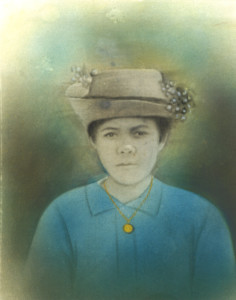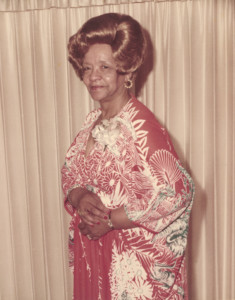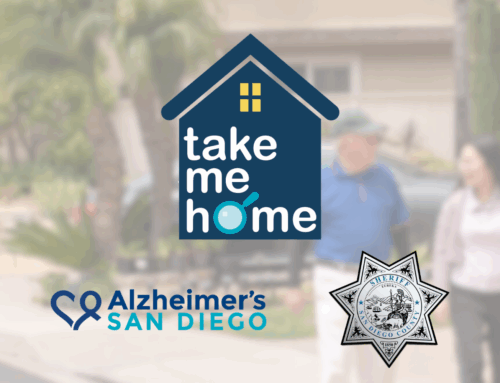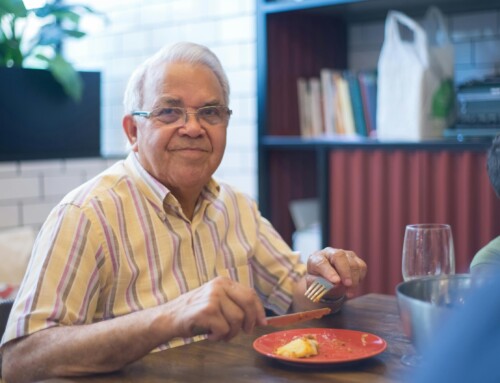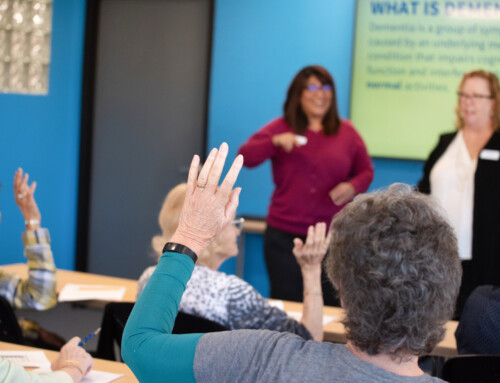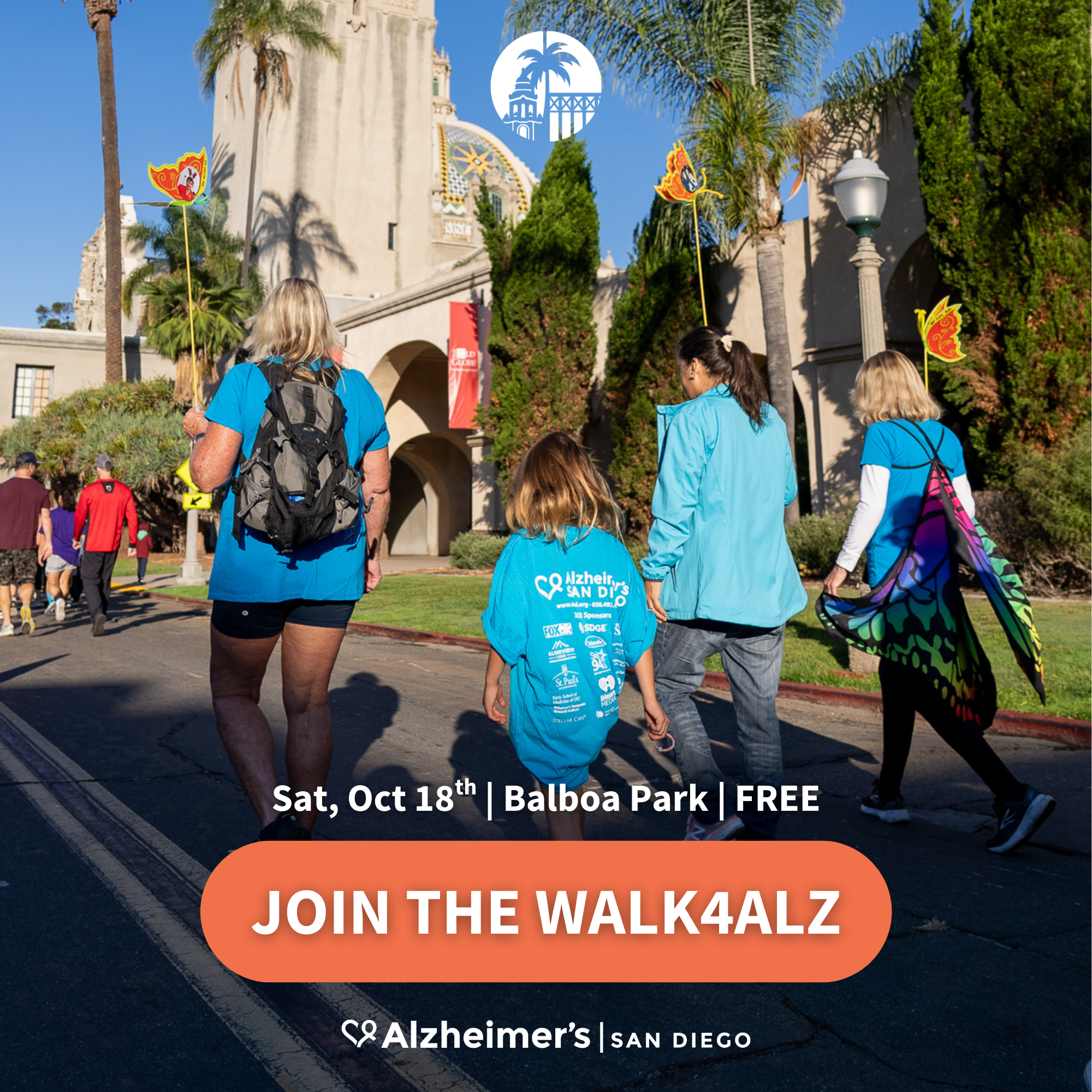 You may recognize Patricia Williams Gorman, even if you’ve never met her. She has graced local TV screens since 2019, as part of our “Caregiver Stories” public service announcements.
You may recognize Patricia Williams Gorman, even if you’ve never met her. She has graced local TV screens since 2019, as part of our “Caregiver Stories” public service announcements.
Her husband, Bob, accompanied her to the small Barrio Logan studio where we recorded the PSAs. He oozed charisma and instantly charmed everyone on set with his upbeat attitude and jokes for days.
He also couldn’t stop complimenting Patricia as she got her makeup done. It was clear the repetition was not a sign of the disease that was slowly overtaking him – rather, it came from his love and devotion to her. They were married for 45 wonderful years, until Bob passed away in August 2020 from dementia and cancer.
“The thing that I loved about Bob is he was very kind and gentle,” Patricia explains. “He was a very courageous person. When I think about him, I think about how we were so in tune.”
Even as Bob’s loss remains painfully raw, Patricia is determined to share her story once again. She hopes to inspire others to recognize the signs of dementia, and to get help from organizations like Alzheimer’s San Diego – especially Black Americans and other people of color, who are disproportionately impacted by this disease.
Patricia first experienced dementia with her mother, Dessie Venita Carter. She was the oldest of three girls. Her own mother died when she was only in her late 30s, after she was refused hospitalization in segregated Macon, Georgia. So at 18 years young, Dessie worked her way through college to help take care of her younger sisters.
“She was the kind of woman who made it her business to figure out how to get what she needed in a kind way. She taught me that,” Patricia says. “She never complained about the issues forced on her, she would just give the facts.”
For instance, when Dessie was still in college, she made an arrangement with a white shopkeeper. At the time, Black customers couldn’t go inside to buy their food until all the white customers were done shopping. This meant she was often forced to wait outside for hours, and potentially miss class or work.
“Because she thought it was important to get this degree to take care of her sisters, she made an agreement with the (shopkeeper) so she didn’t have to wait. My mother was very persuasive,” Patricia says. “The lady in the store said she could help her if she’d quietly give her a list, leave the store, and come back at the designated time. She’d sit the groceries to the side so she didn’t have to come into the store.”
After Dessie graduated with a degree in Education, she got married and moved to Michigan. Yet another obstacle came up, when the state refused to accept her credentials from Georgia. So she decided to pursue a new career path and become a nurse. Patricia believes this was her way of honoring the mother she lost so young because of the racist, segregated healthcare system. While Dessie was rejected from nursing school at first because she was “too old” to start a new career, her persuasiveness triumphed once again. She went back to the school the next day, and convinced them she should be accepted – and she was. Dessie spent many years working as a nurse, and she particularly enjoyed helping families find ways to take care of their loved ones in the comfort of their own home.
Patricia first started noticing signs that her mother was unwell when the usually fastidious dresser showed up for church wearing a jacket with a massive stain on it. Symptoms progressed from there. For instance, she started noticing dirty dishes being put away in the cupboard, and at times Dessie would insist she had to go home when she was already in her own apartment.
When Patricia tried to get an official diagnosis for her mother, she was dismissed by several medical professionals.
“The first doctor we went to…he looked me right in the face and said, ‘I don’t think your mom has a problem, I think you have a problem,’” she shares. “He said, ‘I think your expectations are too high.’ For days after I couldn’t understand what would make him feel that way. I was an intelligent person responding to what I saw.”
Dessie was eventually diagnosed with dementia by another doctor, and she moved in with Patricia, Bob, and their two sons.
Bob was a wonderful care partner, and Patricia remembers one occasion that still makes her laugh out loud to this day.
“Bob was very helpful, she just loved him. One day I came home from work, and he was still laughing about something she’d said. When he gave her breakfast that morning, she turned to him and said, ‘You are such a nice man, I’m going to find you a wife,’” Patricia recalls with a chuckle. “Even though she had dementia, we made it work and tried to laugh at those things that were funny.”
Decades later, Bob’s own dementia symptoms presented quite differently, and were entwined with a cancer diagnosis. The first signs Patricia noticed were personality changes.
“He was diagnosed with prostate cancer in early 2014, had surgery, and then he was very depressed. That’s how it manifested. He wasn’t interested in doing anything and was very repetitive about the fact he’d had the surgery, saying he didn’t know why he’d needed it,” Patricia explains. “He did not want to see his friends. This was totally not Bob – he met no strangers. Things went downhill with his memory then.”
As Patricia worked to get a diagnosis and treatment plan for Bob, she once again found herself frustrated by the healthcare system. She is grateful that his primary care provider was always kind to Bob and would answer questions she had without judgment or condescension.
“I was trying to figure things out. I was looking for opportunities to extend his life and make it as pleasant as possible,” she says. “It was my second time around. I know you can’t cure this. I wanted to find something helpful…for someone to tell me what to do next.”
While searching for resources, Patricia discovered Alzheimer’s San Diego. We were able to serve her family in many ways. She attended our education classes and annual research forum, Date With A Cure. When Bob started wandering, we enrolled him in the Take Me Home program. We were also able to match Bob with an ALZ Companion volunteer, who spent time with him every week so Patricia could take a break from caregiving. They loved playing cards together, and even continued virtual visits after the start of the COVID-19 pandemic.
Patricia also was part of our “Confessions of a Caregiver” panel, where experienced caregivers share their stories and answer questions from other dementia care partners. While she enjoyed the panel and bonded with people in attendance, one thing stood out to her.
“I was disappointed not to see anyone who looked like me,” Patricia explains. “I had read several articles about a fairly large African American population with dementia. There may not be a large population in San Diego, but I was disappointed we didn’t have any African Americans in the crowd, out of about 60 people there.”
In fact, research shows that African Americans are twice as likely to develop Alzheimer’s disease or another dementia than Caucasians. While dementia is the 6th-leading cause of death nationally, it is the 4th-leading cause of death among African Americans.
Alzheimer’s San Diego is committed to improving and increasing our outreach to better serve our diverse community. We have a specific plan and goals in place, which you can read about on our Diversity, Equity & Inclusion page. We are humbled and grateful that Patricia is sharing her story to try and reach people who may have a deep mistrust or hesitation when it comes to getting outside support.
“It’s important that people understand what it is you do here and that you can get help. I want them to know that it’s not just for others, it’s for them, too,” Patricia says. “As African Americans, we have been in so many situations where we were not welcome, and it was very clear to us that we did not belong. That’s what I would like to help with…so they know Alzheimer’s San Diego is for everybody.”
Patricia shares all this almost six months to the day after Bob’s passing. It is a testament to her strength and character that even now, as she is grieving, she hopes she can help other caregivers going through what she’s already gone through twice.
As she talks about Bob, it is clear she is proud of the example he served to their two sons, Errol and Karl, and to their six grandchildren.
“Two days before Bob passed, our sons went to his room and told him that he had done so much for them, and how much they appreciated him,” she says. “They said, ‘Dad, you can go now. We’re good because you have taught us to be okay.’ And then he knew he was free.”
Get free support by calling Alzheimer’s San Diego at 858.492.4400 or clicking here. We’re here to help!
